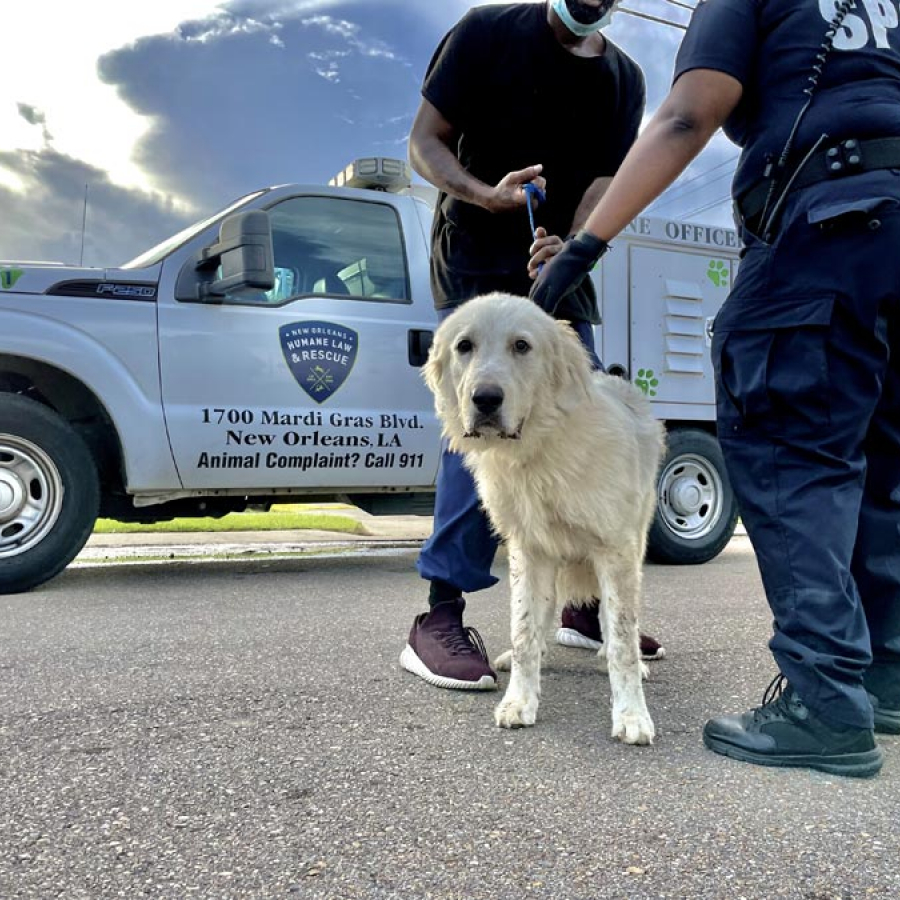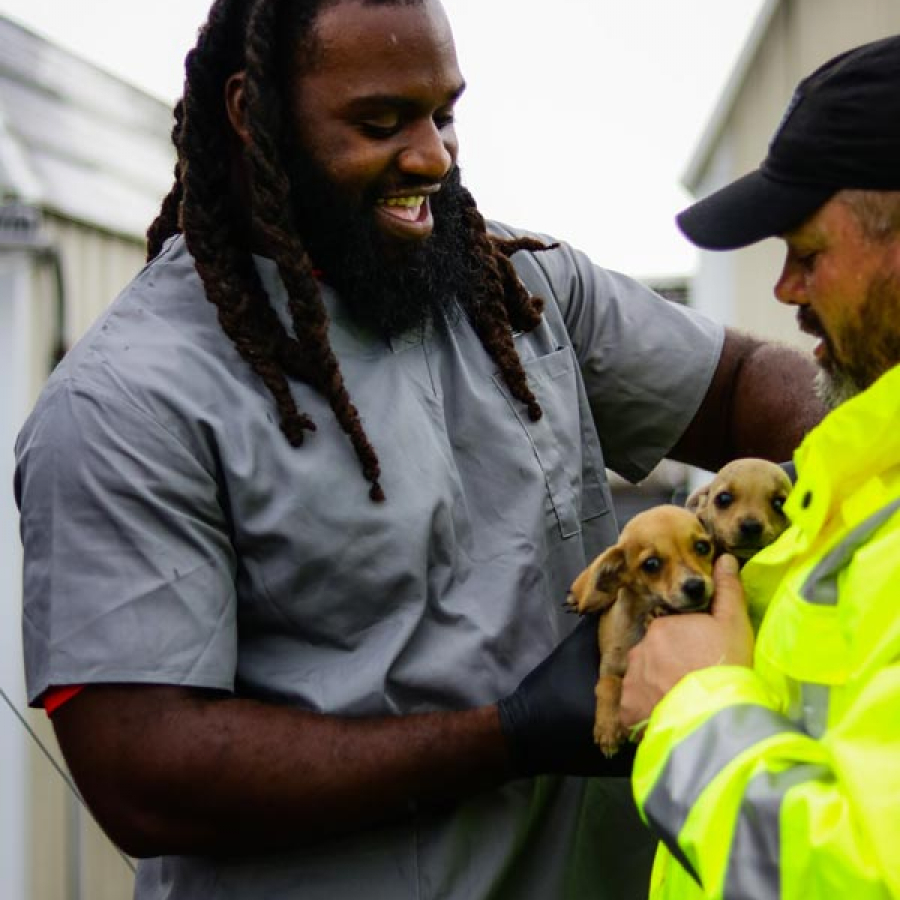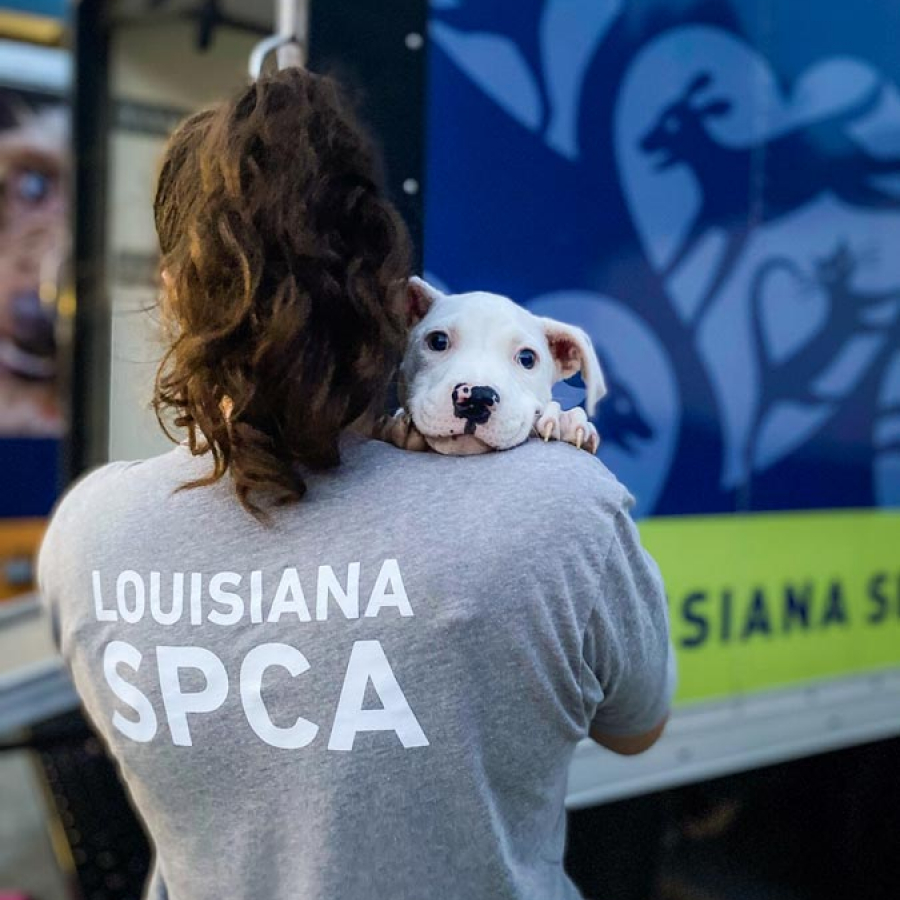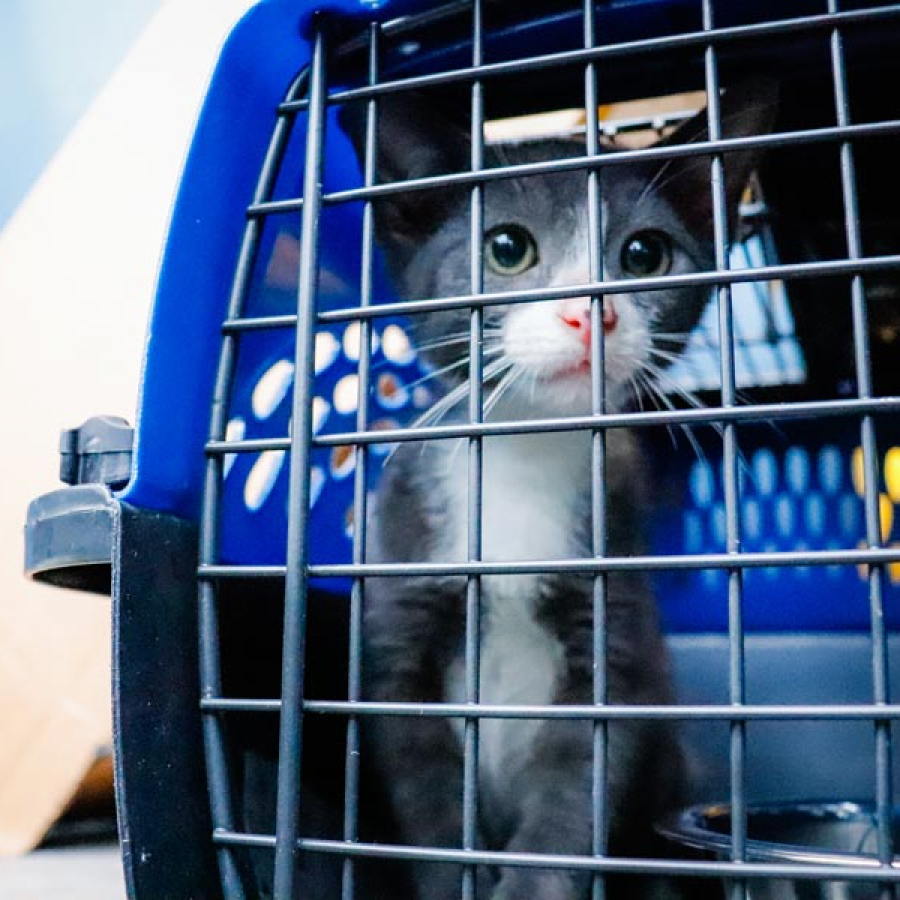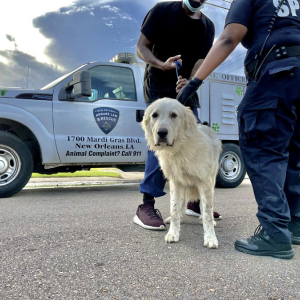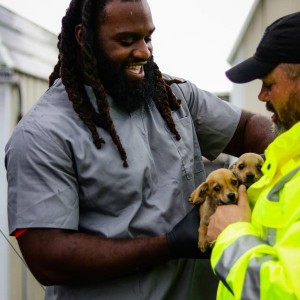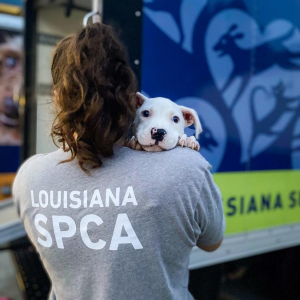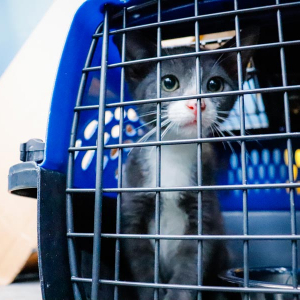June 1 marks the first official day of hurricane season. Although severe weather is expected, we want to make sure we are fully prepared. With that in mind, we want to urge pet-owners to create an evacuation plan that includes their pets! Pets are members of the family and should be included in all disaster preparations.
Did you know that before Hurricane Katrina, it is estimated that roughly 259,400 families owned pets in New Orleans? Because there was no formal evacuation plan for residents needing assistance or for those with pets, as many as 104,000 pets were left behind. Forty-four percent of those families chose not to evacuate because they refused to leave their pets.
Natural disasters such as hurricanes and floods are out of our control. However, planning for a disaster is something we can all do. Just like other members of your household, emergency planning for your pets requires supplies and advance preparation. The supplies you gather should provide for your pet for at least five days.
Are you ready for hurricane season?
If a hurricane reaches high winds that call for an emergency city-wide evacuation, here is a list of things we recommend preparing ahead of time:
New Orleans residents who will need assistance to evacuate are urged to register with the City of New Orleans to participate in the City Assisted Evacuation Plan (CAEP). This plan includes both residents and their pets. Orleans Parish residents can register by calling 311. When a mandatory evacuation is called, pickup points throughout the city will be announced where you can board buses that will take you to the evacuation departure points.
If there are projections of a small hurricane or tropical storm, and you do not need to evacuate, we recommend a few ways to keep your pets calm as you wait out the storm.
At the end of the day, we want to ensure that our pets are safe and cared for as we enter another active hurricane season. In the event of a hurricane, we need to be prepared with all the essential documents and items for our ourselves and our pets, in the case of an emergency evacuation.
For more information about how to prepare for your pets for hurricane season, visit www.nola.gov/ready or call 1-800-BE-READY. For more information about planning for an evacuation with your pet, visit www.louisianaspca.org/evacuation.
Did you know that before Hurricane Katrina, it is estimated that roughly 259,400 families owned pets in New Orleans? Because there was no formal evacuation plan for residents needing assistance or for those with pets, as many as 104,000 pets were left behind. Forty-four percent of those families chose not to evacuate because they refused to leave their pets.
Natural disasters such as hurricanes and floods are out of our control. However, planning for a disaster is something we can all do. Just like other members of your household, emergency planning for your pets requires supplies and advance preparation. The supplies you gather should provide for your pet for at least five days.
Are you ready for hurricane season?
- Does your pet have up-to-date vaccines, and do you have copies of your pet’s medical records? All boarding facilities and veterinarian offices will require proof of immunization before accepting pets. If you plan to cross state lines with your pet during an evacuation, your pet is legally required to be up to date on all their vaccinations.
- Are your pet’s ID tags up-to-date?
- Does your pet have a microchip? This is a permanent form of identification that can reunite you with your fur-baby in the event that they get lost during a storm. Need a microchip? Schedule an appointment at the Louisiana SPCA’s Community Clinic.
- Compile a list of places to go. Consider staying with family or friends outside the strike zone. Look into pet-friendly hotels, shelters or boarding facilities.
If a hurricane reaches high winds that call for an emergency city-wide evacuation, here is a list of things we recommend preparing ahead of time:
- Food and water. Keep food in an airtight, waterproof container. Water for pets should be in addition to the water you need for yourself and family.
- Medicine and medical records. Keep an extra supply of medicine your pet takes on a regular basis in a waterproof container. All boarding facilities and veterinarian offices require proof of immunization before accepting animals. Collar with ID tag; harness or leash. Your pet should always wear a collar with its rabies tag and identification.
- Documents. Place copies of your pet's microchip information, registration, adoption papers, vaccination documents and medical records in a clear plastic bag or waterproof container.
- Crate or some sort of pet carrier. Carriers should be large enough for your pet to stand up, completely turn around and lie down. Mark your name, address, phone number and an alternate contact on the carrier.
- Sanitation. Include pet litter, newspapers, towels, plastic trash bags and cleaners in your evacuation bag so you can pick up after your pet.
New Orleans residents who will need assistance to evacuate are urged to register with the City of New Orleans to participate in the City Assisted Evacuation Plan (CAEP). This plan includes both residents and their pets. Orleans Parish residents can register by calling 311. When a mandatory evacuation is called, pickup points throughout the city will be announced where you can board buses that will take you to the evacuation departure points.
If there are projections of a small hurricane or tropical storm, and you do not need to evacuate, we recommend a few ways to keep your pets calm as you wait out the storm.
- If your pet is anxious during a storm, we recommend closing all blinds and curtains to muffle the noise and reduce lighting flashes, and do not take your pet outside while it is storming.
- To help with their anxiety and stress, you can try engaging them in an activity that distracts them from the sounds of the loud storm.
- If this doesn’t work, make sure they have access to a space of theirs that feels safe, such as a kennel or under the bed, and play calming music to drown out the noise of the storm.
- After a major storm, be sure to check the yard before allowing your pet outside. There could be downed powerlines, gaps in fences, or dangerous debris in your yard.
- If your dog has extreme anxiety during severe weather, talk to your vet and/or certified trainer to see if there are other measures that you can take to reduce your pet’s anxiety during storms.
At the end of the day, we want to ensure that our pets are safe and cared for as we enter another active hurricane season. In the event of a hurricane, we need to be prepared with all the essential documents and items for our ourselves and our pets, in the case of an emergency evacuation.
For more information about how to prepare for your pets for hurricane season, visit www.nola.gov/ready or call 1-800-BE-READY. For more information about planning for an evacuation with your pet, visit www.louisianaspca.org/evacuation.
Tagged in Paws for Cause in our Summer 2022 issue

